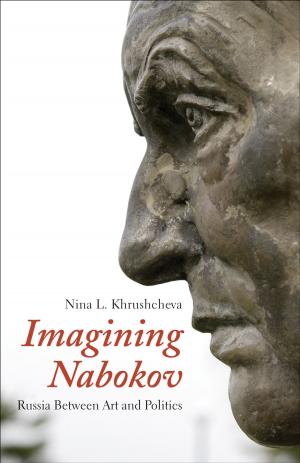Power, Plain English, and the Rise of Modern Poetry
Fiction & Literature, Literary Theory & Criticism, Poetry History & Criticism| Author: | Prof. David Rosen | ISBN: | 9780300129489 |
| Publisher: | Yale University Press | Publication: | October 1, 2008 |
| Imprint: | Yale University Press | Language: | English |
| Author: | Prof. David Rosen |
| ISBN: | 9780300129489 |
| Publisher: | Yale University Press |
| Publication: | October 1, 2008 |
| Imprint: | Yale University Press |
| Language: | English |
In this engaging book David Rosen offers a radically new account of Modern poetry and revises our understanding of its relation to Romanticism. British poets from Wordsworth to Auden attempted to present themselves simultaneously as persons of power and as moral voices in their communities. The modern lyric derives its characteristic complexities-psychological, ethical, formal-from the extraordinary difficulty of this effort.
The low register of our language-a register of short, concrete, native words arranged in simple syntax-is deeply implicated in this story. Rosen shows how the peculiar reputation of plain English” for truthfulness is employed by Modern poets to conceal the rift between their (probably irreconcilable) ambitions for themselves.
With a deep appreciation for poetic accomplishment and a wonderful iconoclasm, Rosen sheds new light on the innovative as well as the self-deceptive aspects of Modern poetry. This book alters our understanding of the history of poetry in the English language.
The low register of our language-a register of short, concrete, native words arranged in simple syntax-is deeply implicated in this story. Rosen shows how the peculiar reputation of plain English” for truthfulness is employed by Modern poets to conceal the rift between their (probably irreconcilable) ambitions for themselves.
With a deep appreciation for poetic accomplishment and a wonderful iconoclasm, Rosen sheds new light on the innovative as well as the self-deceptive aspects of Modern poetry. This book alters our understanding of the history of poetry in the English language.
In this engaging book David Rosen offers a radically new account of Modern poetry and revises our understanding of its relation to Romanticism. British poets from Wordsworth to Auden attempted to present themselves simultaneously as persons of power and as moral voices in their communities. The modern lyric derives its characteristic complexities-psychological, ethical, formal-from the extraordinary difficulty of this effort.
The low register of our language-a register of short, concrete, native words arranged in simple syntax-is deeply implicated in this story. Rosen shows how the peculiar reputation of plain English” for truthfulness is employed by Modern poets to conceal the rift between their (probably irreconcilable) ambitions for themselves.
With a deep appreciation for poetic accomplishment and a wonderful iconoclasm, Rosen sheds new light on the innovative as well as the self-deceptive aspects of Modern poetry. This book alters our understanding of the history of poetry in the English language.
The low register of our language-a register of short, concrete, native words arranged in simple syntax-is deeply implicated in this story. Rosen shows how the peculiar reputation of plain English” for truthfulness is employed by Modern poets to conceal the rift between their (probably irreconcilable) ambitions for themselves.
With a deep appreciation for poetic accomplishment and a wonderful iconoclasm, Rosen sheds new light on the innovative as well as the self-deceptive aspects of Modern poetry. This book alters our understanding of the history of poetry in the English language.
More books from Yale University Press
We use our own "cookies" and third party cookies to improve services and to see statistical information. By using this website, you agree to our Privacy Policy















